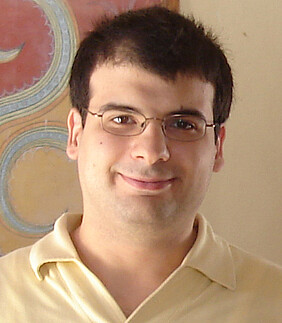The Technical University of Crete was awarded funding by the European Research Council (ERC) for research into cutting-edge technologies in the wider area of artificial intelligence. From the total of 2,130 applications coming from research institutions from all over the EU member states and other countries associated with the ERC, only 308 proposals were selected for funding under the ERC-2023-CoG program (also known as ERC Consolidator Grants). Proposals go through a thorough review by distinguished scientists selected by the ERC and are approved according to strict criteria of excellence. The funded project is one of the two projects that will be funded under this program in Greece and the only one in the general area of Physical Sciences and Engineering in our country. In fact, the ECE school is receiving such funding for the second year in a row, since last year an ERC consolidator grant was awarded for the C-NORA project to the Associate Professor Nikos Bekiaris under the ERC-2022-CoG program. The ECE school of the Technical University of Crete is the only school in computer science, computer engineering, and in general the only engineering school in Greece that will be running in parallel two active projects of the European Research Council with a total funding of 4 million euros.
Information about the project:
The new funded project, titled "NEURi3D - Learning to generate interactive 3D models”, has a five-year duration. It focuses on the development of artificial intelligence and deep learning methods for generating 3D interactive content, as well as the automatic processing and recognition of spatial and spatiotemporal data coming from video devices and 3D sensors.
Information about the principal investigator:
The principal investigator of the project is Evangelos Kalogerakis, Associate Professor at UMass Amherst, who will move to the Technical University of Crete for the purposes of the project. Evangelos graduated with honors from the ECE school of the Technical University of Crete in 2005. He was then accepted at the Computer Science Department of the University of Toronto in Canada for MS & PhD studies. There he specialized in the use of artificial intelligence in computer graphics and vision. When he finished his PhD in 2010, he was accepted as a postdoctoral researcher at Stanford University in the United States, where he worked for another two years on this research area. In 2012 he was elected as a faculty member in the School of Computer Science at the University of Massachusetts. His area of research is the development of machine learning and artificial intelligence techniques to create and process digital representations of the 3D world (e.g., 3D models of objects, scenes, and animations). He is also interested in machine learning algorithms that process images, videos, geometric data and 3D scans from cameras for automatic object recognition, automatic classification and segmentation of their parts that can be used in robotics, medical, industrial design and product manufacturing applications. His work includes dozens of publications in world-leading international research journals and proceedings of international refereed conferences, such as Computer Vision and Pattern Recognition (CVPR), International Conference on Computer Vision (ICCV), and ACM SIGGRAPH. He already has over 10,000 citations in his work. His and his students' research has been incorporated into various software products, such as "Adobe Character Animator" and "Adobe Fuse". He has been chosen repeatedly to serve as area chair at leading machine vision conferences (CVPR, ICCV, ECCV), while this year he chaired the largest computer graphics conference in Europe (Eurographics – full papers chair). He is a member of the editorial board of the top computer science journal IEEE Transactions on Pattern Analysis and Machine Intelligence (TPAMI). He is listed in the top 2% of scientists worldwide according to the recent annual ranking in the bibliometric study by J.P.A. Ioannidis of Stanford University. He was also named among the 100 outstanding scientists worldwide in the field of computer graphics for the decade 2010-2020 by the Aminer Academic Network of Tsinghua University, China. Detailed information on available MS, PhD, and postdoctoral research positions in the scientific subject of the project is posted at the following link: https://kalo-ai.github.io/erc.html



